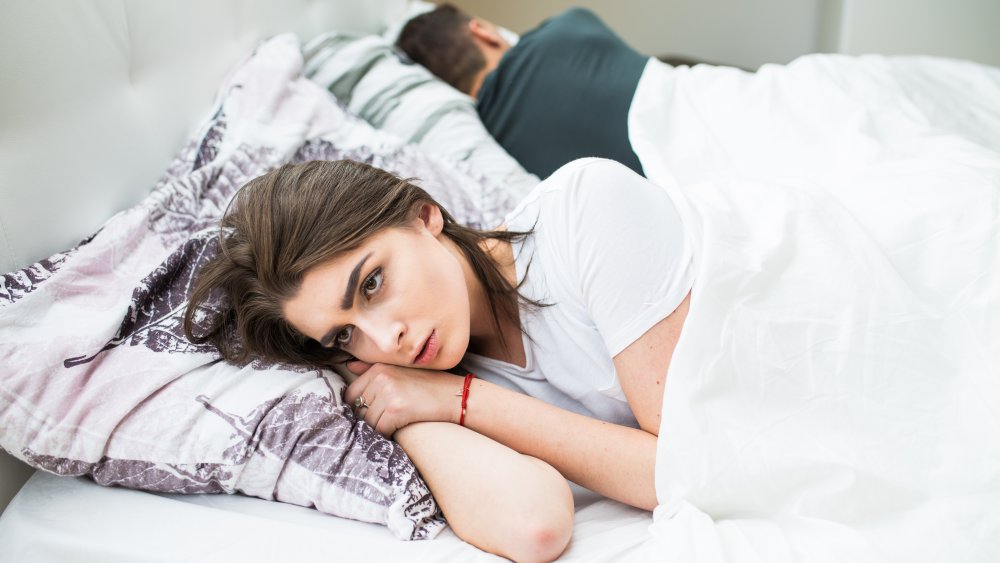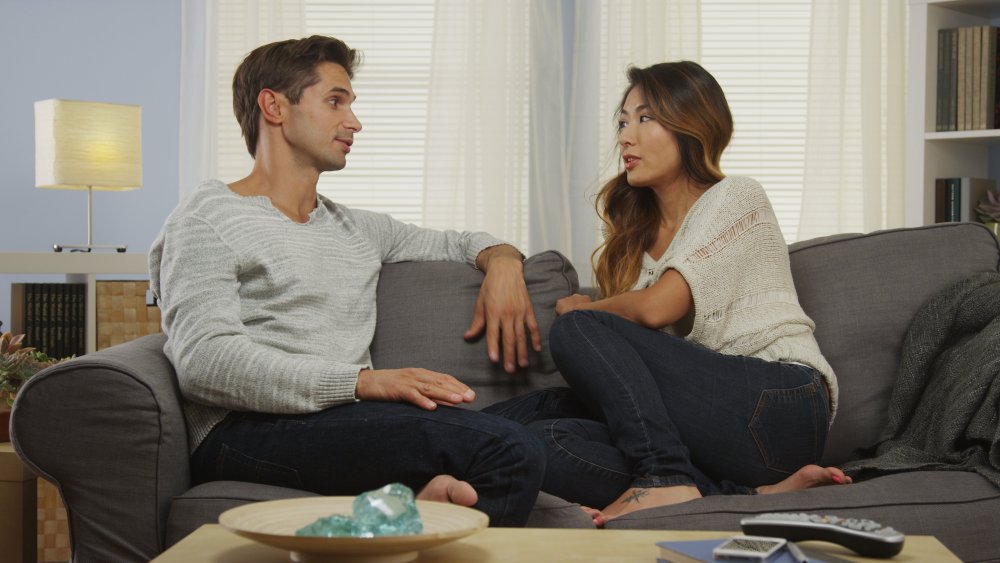How To Know If An Open Relationship Is Right For You
Mention open relationships and many people react with a certain degree of discomfort ranging from nervous giggles to outright shock and horror. Meanwhile, however, there are numerous others who find that these types of relationships actually work for them. According to Psychology Today, older adults in open relationships were found to be both happier and healthier than their monogamous peers. What's more, if you are considering an open relationship, you may not find it as difficult to find like-minded partners as you'd think — a different Psychology Today article reveals that over 20 percent of adults in the U.S. have engaged in this type of relationship at some point in their lives. In fact, there are even some celebrity couples who've experimented with open relationships.
One thing you need to be clear about, however, is just what constitutes an open relationship. Another term for this is consensual non-monogamy (CNM) — key word being consensual. On both sides. Such a relationship is not cheating since a fundamental tenet of a successful CNM is that both partners be on the same page regarding what types of extracurricular activities — and partners — are tolerated and which ones are deal-breakers.
You find monogamy stifling
While the monogamous relationship is held up as some sort of platonic ideal, the truth is, it really doesn't work for everyone. The fact that divorce is pretty much a commonplace these days (quick, name 10 famous people still with their first spouse!) speaks to this, as well. While many people engage in serial monogamy, falling into one short-term relationship after another, others choose to confront society's often unrealistic expectations regarding fidelity head-on.
Relationship coach Laurie Ellington told Elite Daily that non-monogamy may also be right for anyone who's "experienced a sense of losing themselves in a monogamous relationship" and would prefer "a new experience where they can be 100 [percent] who they are without editing themselves for the sake of another's feelings." Self mentions that part of being true to yourself might be particularly relevant if you identify as bisexual — an open relationship may be the only way you can maintain a committed relationship with a partner of one gender while exploring your attraction to the other gender.
You're clear about your expectations
Before you can even begin exploring the possibilities of an open relationship, you must first be honest with yourself. Sure, you want to have the freedom that comes with multiple partners, but how do you envision doing this? Sex educator Aida Manduley, speaking to Elite Daily, defines an open relationship as one "where there's a primary partnership of two individuals and they can both have adventures, usually just sexual, outside that 'main' relationship," whereas polyamorous relationships are "identified by [their] focus on having multiple relationships with the consent of all people involved."
Do you see yourself as the poly type, or do you want one main squeeze, but with permission to take the occasional field trip off the reservation? The most important consideration, however, is are you able to grant your partner(s) the same freedom that you, yourself, would like to enjoy? If the kind of relationship you have in mind is one where you're free to do whatever you like, with whomever you like, but you expect fidelity from one or all of your partners, that's not an open relationship, that's just you being a creep.
You and your partner(s) are able to communicate your needs
Should you reach the point where you and any partners or potential partners are in agreement about the desirability of an open relationship, great! But the work doesn't stop there. Before anyone does any adventuring, you're going to have to set some ground rules, and this requires having the dreaded "talk." Or, more likely, quite a few talks. Downright negotiating, even. But, as Self points out, in consensual non-monogamy, it's vital to know just what you're consenting to.
Should your trysts take place outside the home, or are sleepovers permitted? Will you use protection? Will your outside-the-relationship relations be limited to sex only, or are you permitted any type of friendship with a non-primary partner? What will you do if one or both of you start to develop romantic feelings for side partners? If one or both partners are bisexual, are you expecting that their outside sexual encounters will be limited to same-gender only? Sure, it may feel a bit awkward having to lay out all the details like that, but avoiding mismatched expectations is the best way to make sure your open relationship has a chance to succeed.



